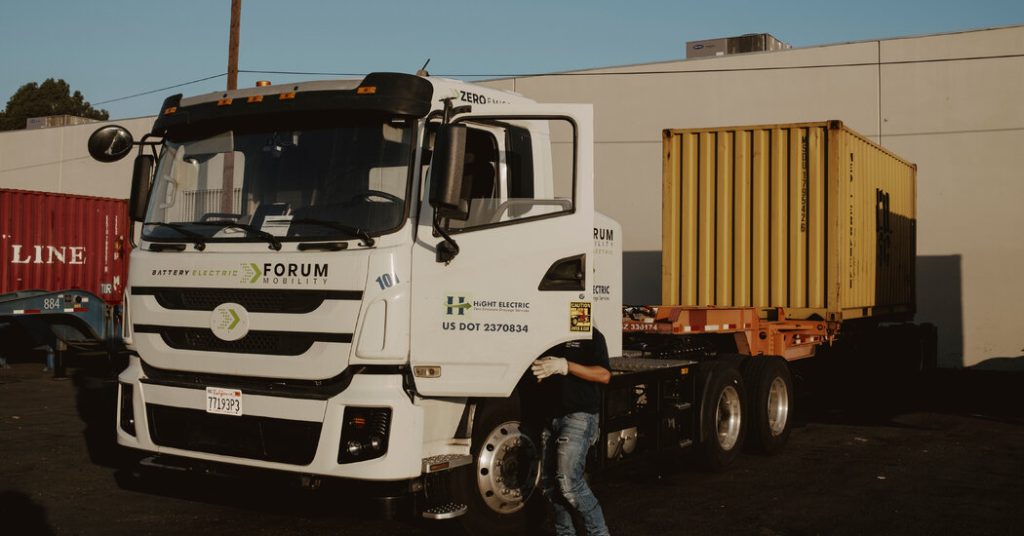The Biden administration has introduced a new regulation aimed at increasing the sales of electric or other zero-emission heavy vehicles in an effort to combat global warming. The regulation targets various types of heavy vehicles, including school buses, cement mixers, and tractor-trailers, with the goal of ensuring that a significant portion of new trucks sold in the United States are nonpolluting by 2032. The rule does not mandate electric trucks specifically, but rather sets limits on the amount of pollution allowed from trucks over time, leaving manufacturers to determine how to comply.
The new regulation is part of a broader strategy to reduce carbon dioxide emissions from transportation, the largest source of fossil fuel emissions in the United States. By transitioning to cleaner trucks, the Environmental Protection Agency aims to improve air quality in communities near freight truck routes, particularly benefiting low-income and minority populations disproportionately affected by pollution. The regulation is expected to prevent approximately one billion tons of greenhouse gas emissions by 2055, leading to significant public health and environmental benefits.
While electric passenger vehicles have gained traction in the market, electric trucks have yet to see widespread adoption due to high costs and insufficient charging infrastructure. The current price difference between electric trucks and conventional diesel trucks, as well as the lack of charging stations capable of serving heavy trucks, present significant challenges to the widespread adoption of electric trucks. Manufacturers and trucking companies are cautious about the new regulations and the feasibility of transitioning to electric vehicles, citing concerns about costs and infrastructure.
Despite the challenges, there is some progress in the adoption of electric trucks, with companies like Frito-Lay and 4 Gen Logistics investing in electric models for their fleets. Government subsidies, provided through legislation like the bipartisan infrastructure law and the Inflation Reduction Act, aim to support the transition to electric trucks by funding charging infrastructure and providing tax credits for companies. The Energy Department and the Transportation Department have also announced plans to prioritize the construction of heavy-duty electric truck chargers in designated “zero-emission freight corridors.”
While transitioning to electric trucks presents challenges for the industry, experts believe that it is a solvable problem that can lead to significant environmental and health benefits. By setting stricter tailpipe limits for heavy trucks and promoting the adoption of electric vehicles, the Biden administration seeks to accelerate the transition to cleaner transportation and reduce the nation’s greenhouse gas emissions. Despite criticism from some Republicans and industry representatives, the administration remains committed to advancing the use of electric and zero-emission vehicles to address climate change and improve public health.


